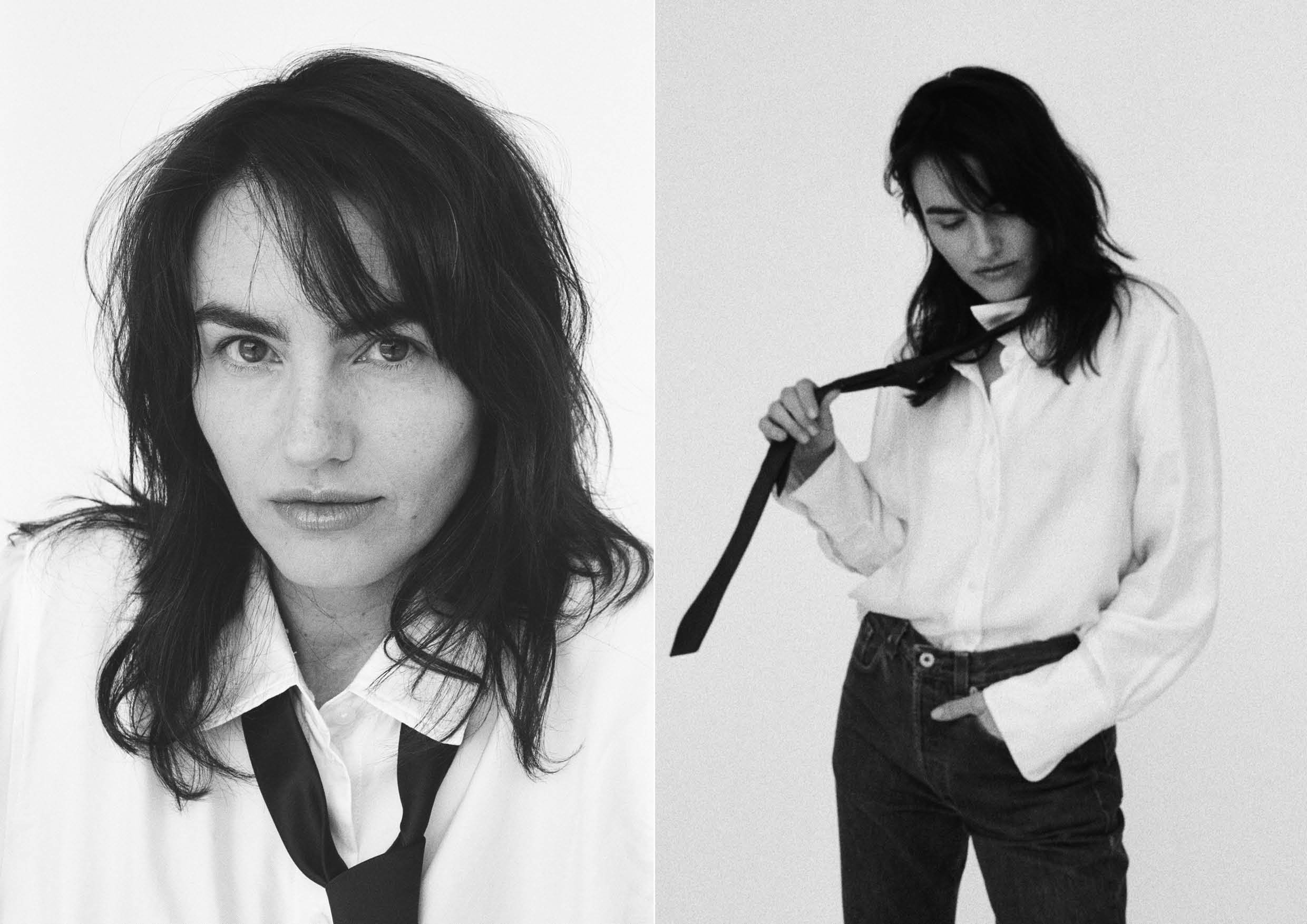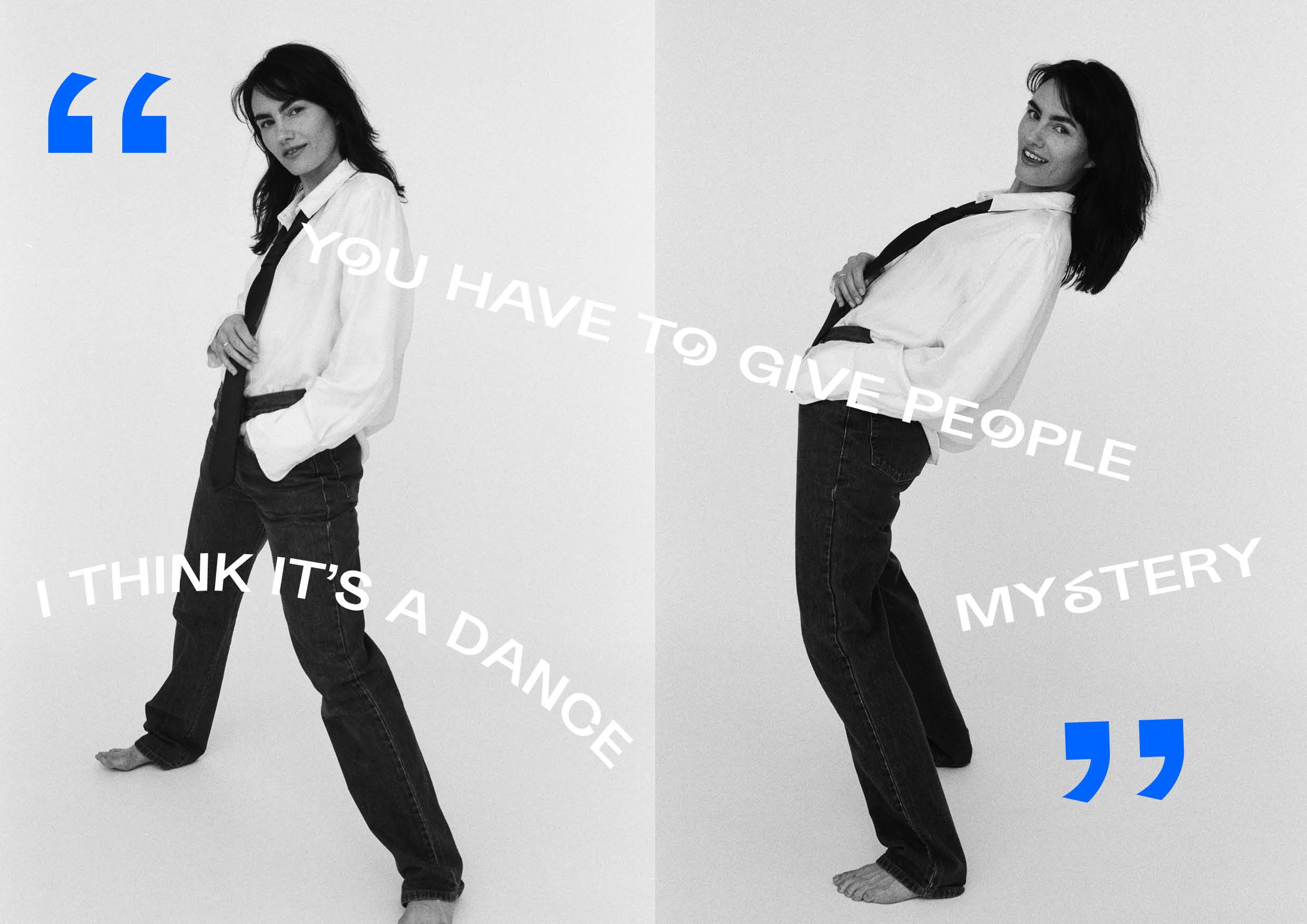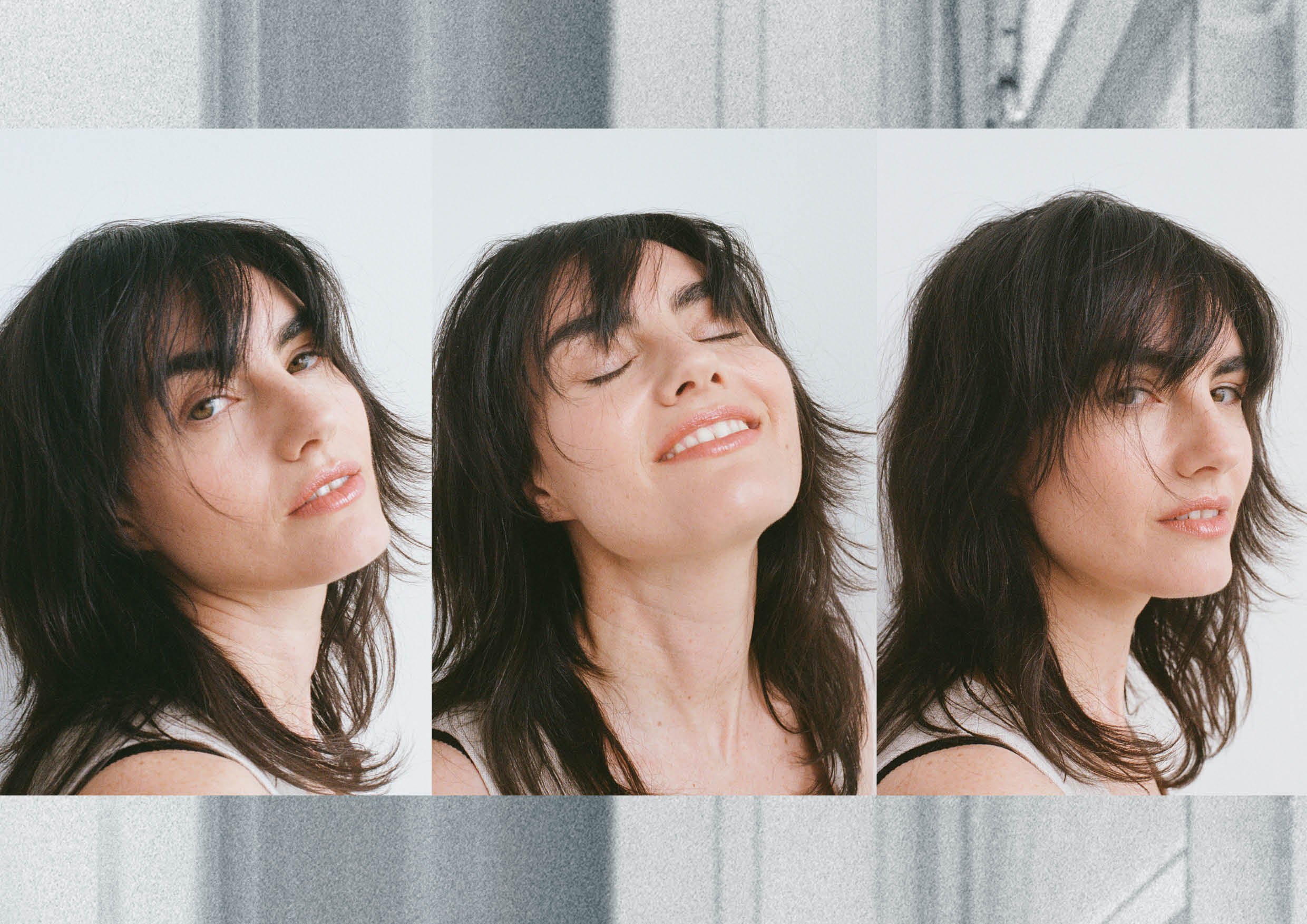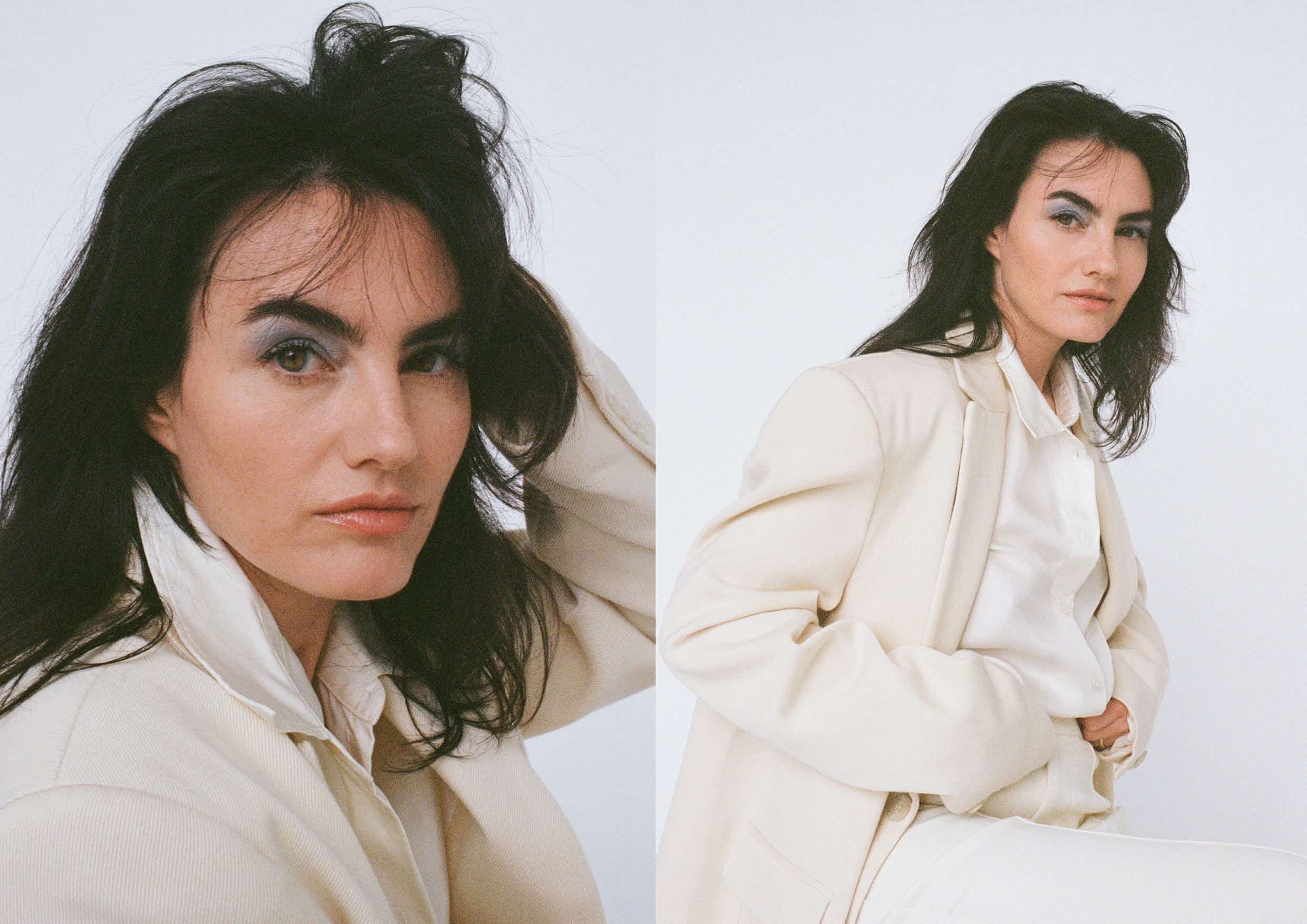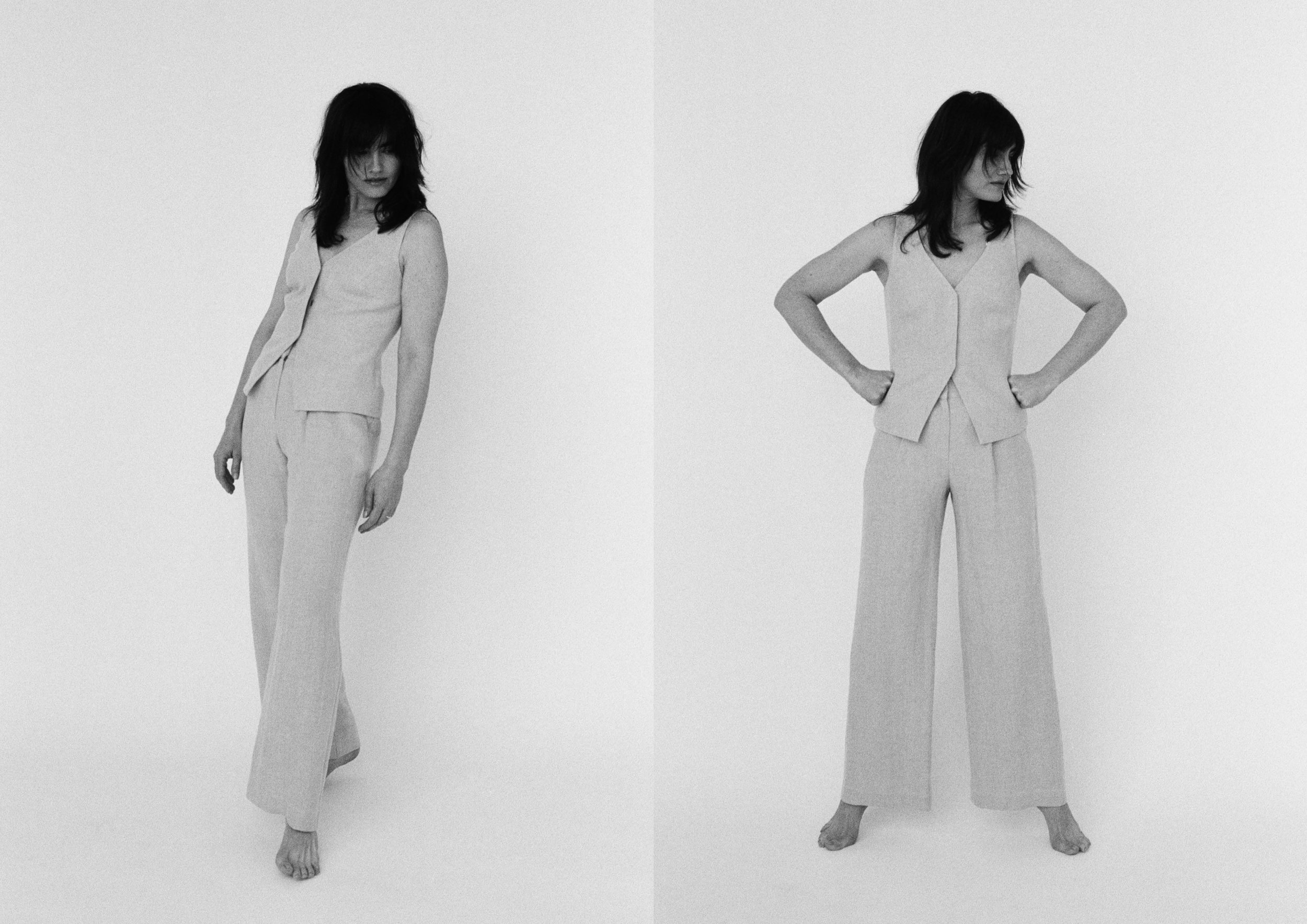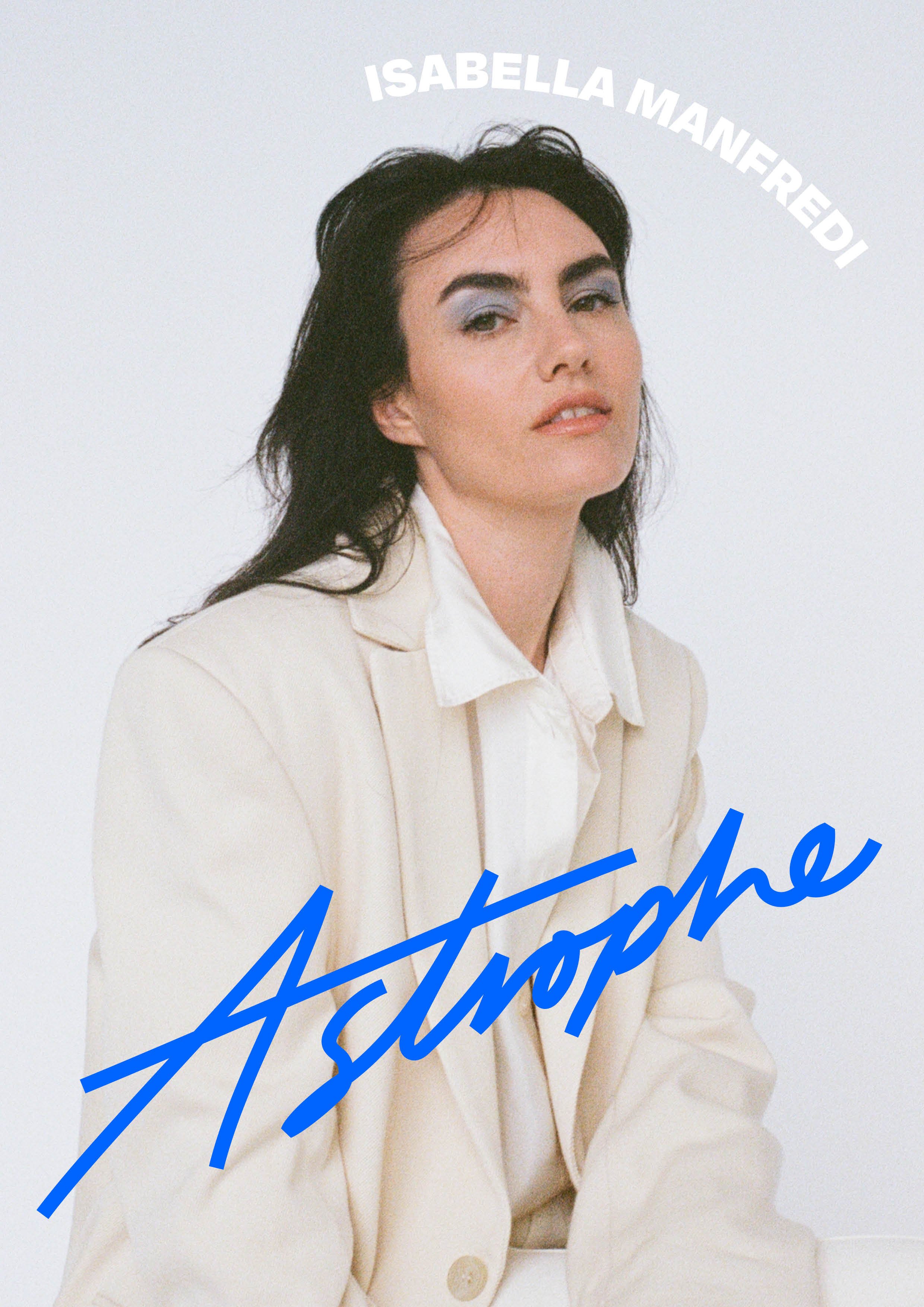ISABELLA MANFREDI
Isabella Manfredi walks into the studio with purpose, her melodic humming weaves through the room as she changes between looks. She is the personification of electricity.
It's hard to believe that it's already been five years since she graced the cover of Astrophe's issue 2. Since then, she has experienced life in full. The breakup of a band, a lockdown, a marriage, a baby, and now her new solo album Izzi.
Manfredi has undergone a transformation both as a musician and a person and we were excited to see how it was all going. The Astrophe team had a gorgeous and long-awaited catch-up with Izzi to discuss the ideation and production of her new solo album, her future plans, life lessons, and her upcoming intimate album tour.
What’s your creative process? Do you have a set routine that you follow to get inspired? Or does inspiration happen quite organically for you?
It's always different. I definitely don't have a routine, I'm a very anti-routine person. I've tried over the years to get into a routine and book somewhere or have a studio or a room where I go and play, but unless I have a reason to, I don't. I like deadlines, I like to have a mission, to have something to work towards. So I actually have to trick myself a lot of the time, which is why I'm doing this tour. I knew if I didn't do this tour, I wouldn’t get off my ass and actually play the songs and practice, you know? It's just part of my personality. Some artists are different. Some artists have that day in and day out practice but I tend to go with what inspires me.
I noticed that I have a period of time where I just like to live my life and watch TV, go and see my friends perform, and go to shows and then there'll be a period of output, which usually happens in a concentrated period and I have to be a slave to it.
This album is an absolute wonder, we follow you through ‘Jealousy’, ‘Sleepwalking’ and ‘Naive’ optimism. Reflecting back on the earlier stages of writing this album, particularly when writing songs like ‘Jealousy’ and ‘Sleepwalking’ did you always maintain hope that better things were coming, both professionally and personally?
It was not a very nice period, but it was electric in the sense that I'd been in denial for many years. Both professional and personal denial and the beautiful part of that period that I remember is that even though I felt a great deal of pain and heartbreak, disappointment was a big emotion I remember feeling. A lot of disappointment with the choices that I'd made and the way that my life had transpired, and disappointment has this real, sorrowful bitterness about it, it’s its own distinct flavour of emotion. Even though I was feeling all of those things, it was also a really beautiful time because I wasn't in sustainer mode anymore. I was in a process of destruction, of accepting and being truthful about it. I was also in the process of being able to write again because I'd actually had writer's block for many years before that because I wasn't connected to my voice or my truth. That’s why I call this record an emancipation record.
On the question of hopefulness, I feel like my whole creative practice, my whole practice of songwriting is a constant dance with hope and hopelessness because I'm naturally a sceptical, cynical person. But in my music, I'm not. It's interesting to me, I've always wanted to be more of a Nick Cave wrestling with the heaviness of the world, and I'd sit down to write and it's always this pure and innocent, straightforward voice that comes to the table. Sometimes that irks me, sometimes it pisses me off. That's my essence, I guess and that is essentially music’s function, it always slightly touches on the spiritual. I think we need some spiritualism in our lives, all of us in a different way and music is that for me and that's where you touch into hope and a universal consciousness or a sense of God or a sense of self and collective compassion. That's where the hopefulness comes in I think.
What are some of the creative liberties you have been able to take as a solo artist, that you weren’t afforded while you were in The Preatures?
It was so fucking great on this album, as much as I love and appreciate the band and the dynamic of a band that you can't hope to replicate. I fucking love being able to just work with other people. It was so freeing, it was really good for me. It meant that I could not only just match players, producers and personnel to the songs and what I thought the songs needed, but it was also just fun. It was a great way for me to develop, so I loved that. I loved being able to go in different directions with the different songs and being able to play into the genres and across the genres. Whereas, you know, The Preatures is its own entity and needs to be respected. I didn't have that kind of structural integrity to deal with, I could really just draw a new sandbox.
What was the most exciting and fulfilling part of producing this album?
It was really nice to do some producing. I did a lot of comping for this record, as in I sat there and went through all the takes and figured out what I wanted to take from each performance and comping I think is an art form. I would do it as a backseat driver in The Preatures, but it was really nice to be a front-seat driver on this one and just learn a lot more.
As a public figure and artist, do you ever feel too overly exposed especially when releasing music that has so much to do with your lived experiences? If so, how do you protect yourself emotionally when it comes to discussing music that is at times based on very real and personal experiences?
I'm fortunate because I'm not that famous, I'd never want to be super famous, I'd find that maybe a bit confronting. I also think there's a trend maybe in the last 10 years of vulnerability and the hero's journey. I actually think that for the most part, you can vulnerability yourself into a corner so you've got to be careful. At the same time, I'm a person who values honesty, and I'm pretty straight up and I don't have any issue with talking about what's on my mind at the time. So I think it's a dance, you have to give people mystery. Part of our job is to not make everything so literal because you have to give the audience an opportunity to project their own feelings and experiences onto the songs that you write and also inject a little bit of the drama of your life. I think that's the sweet spot.
I’m particularly obsessed with the Rock and Roll meets Country Girl aesthetic that you've been embracing. Boots, cowgirl hats, fringed dresses and embellished garments. How much input do you have when it comes to the aesthetics of what you wear on stage and what's on your album cover? Is it something that you put a lot of thought into when you were writing the album or is it something that has come after the release of the album?
Yeah, with the solo album, I did a lot of work because it took me a while to figure out what I wanted to do after leaving The Preatures and the way that I process things is usually visually first. I did that with ‘Girlhood’ as well, The Preatures record. I sort of built this world and then filled it with songs. So yeah, I had up on my wall with the solo stuff; Kylie Minogue, Chrissie Hynde, Tina Turner, Donna Summer and Bobbie Gentry. So Bobby Gentry is the country, Donna Summers the disco-pop, there was the R&B soul rock'n'roll element which is Tina Turner. Then there's straight-up pop-rock which is Chrissie Hynde and electronic dance diva Kylie Minogue.
So yeah, I definitely had a vision aesthetically of what I wanted to do. Whether or not I pulled that off I'm not convinced because this solo album had to weather so many delays and setbacks including a lockdown, a baby, a contract that never got signed and debt and just thing after thing after thing. And look, I've always been really lucky to work with great people and I would never want to devalue them by saying that I do it all myself. I work with a great stylist called Heather Picchiottino, who is now in LA doing all of Katy Perry and Lil Nas’s costumes. She worked with me for a period around the imagining of the record and I guess what I constantly hear back from people in that stylist role is the same thing that I hear from the people that I work with as producers, which is that I have very strong opinions about everything and I'm much more involved than most artists that they work with, which I find really strange because I just think why would you be nervous to have a strong opinion about everything that you're doing? Isn't that your job? I went through a period, especially around when we were promoting ‘Girlhood’, where I just let go of that side of myself and I thought, well, I should just be more open and I'll go along with people because they know what they’re doing, and it was the worst decision because I just ended up in things that I didn’t feel comfortable in. The reason I loved working with Heather, and I love when we get an opportunity to collaborate, is because she will take an artist's identity and work to it, whereas a lot of stylists want to go well yeah, we've got this arrangement with X brand and I've got this creative director or editor breathing down my neck about getting this on, so you can only wear this, so there's no play and there's no creation of identity. And that's what I have an issue with at the moment, I think it's become overly corporate.
What are some professional and personal plans that excite you at the moment?
Well, I'm moving to the United States, that would be the number one, my family and I. My husband's got a job in San Francisco, he works in tech in AI and obviously for me with music, the US is where it's at right now. So we're gonna go over for a couple of years while our daughter's little and we can travel. So I'm really excited about that and also being able to do this tour is really special. It’s a great way to be able to just bookmark this chapter.
What is an important lesson that you have learned in your life that you want to impart on your daughter?
To trust her instincts, and develop her instincts.
What's an important lesson that she's taught you?
I often notice with her, that when I'm trying to make her do something, or if I put a hard line down, she'll oppose even more. Whereas if I sort of give in a little bit and I don't mean in the sense of allowing bad behavior or coddling. It's almost like a lesson in people if you just “Yes and…”, rather than “No, but…”, you get people on your side, and it's easier and you still get the desired outcome. So she's taught me that. Which is a really valuable lesson, I wish I’d known it when I was in The Preatures.
Talent Isabella Manfredi, CD / Photography Simone Taylor, AD + Layout Valentina Saldouzi, Words Kathleen Halpin, Styling Daniel Hanslow, HMUA Tracy Terashimamua, Copy Editor Alexander Officer, Studio Innkeeper Studios.
Catch ‘IZZI’ THE INTIMATE ALBUM TOUR this October and November 2023, for tickets and dates go to: ISABELLAMANFREDI.CO
LOOK 1 JEANS: Shop The Turn, TIE AND SHIRT: Stylist’s Own / LOOK 2: Jillian Boustred / LOOK 3: BLAZER: Maggie Marilyn, SHIRT: Stylist’s Own, PANTS: Maggie Marilyn

